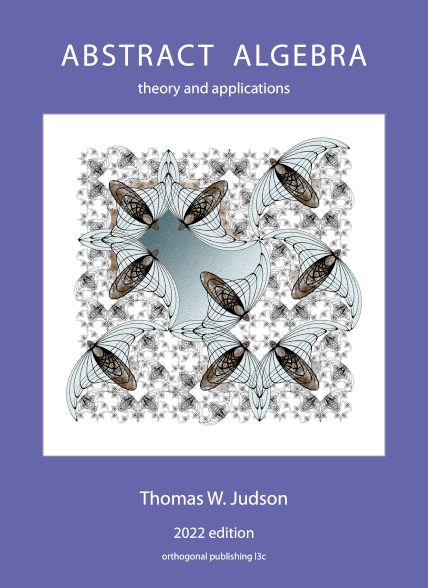Here are my favorite Mathematics texts and some of my reasons I enjoyed them. For textbooks that are freely available online, I've linked them to the relevant section.
Linear Algebra
1. Linear Algebra Done Right by Sheldon Axler.
This book is targeted at students of Pure Mathematics looking to get a theoretical viewpoint of Linear Algebra. The book is very well written and entertaining, and serves its purpose on giving a clear introduction to Abstract Linear Algebra. It takes an unorthodox approach to the subject by avoiding any discussion of the Determinant until the end. This is the only point I did not like/ found strange since the Determinant takes center place in most in most other texts; As a result, the book proceeds with determinant free proofs for major theorems until the very end where the determinant is finally introduced.
2. Linear Algebra Done Wrong by Sergei Treil.
This book, in contrast to Linear Algebra Done Right, has a focus early on practical matrix computations like Gaussian Elimination, RREF, Inverting Matrices, etc. I think it is important to get the hands on matrix computations because they show up in all kinds of Applied Mathematics settings, so Linear Algebra Done Wrong is a perfect supplement to the equally important theory provided by Axler.
Probability
1. Probability for Data Science by Stanley Chan
Most Probability books are dry with endless examples on counting in the setting of a deck of cards - really old school and boring. Dr.Chan provides motivation to learn Probability Theory by connecting each chapter to the popular fields of Data Science and Machine Learning. I felt very motivated to continue reading this book because of its emphasis on modern Data Science and Machine Learning, which I'm very interested in.
 probability4datascience.com
probability4datascience.com
Abstract Algebra
1. Abstract Algebra: Theory and Applications by Tom Judson
I found this book very friendly to beginners. It has motivating examples in cryptography, and programming exercises.

2. Algebra: Chapter 0 by Paolo Aluffi
This book approaches Abstract Algebra from a Category Theoretic perspective. It is a challenging text as well. Category Theory gives you a birds eye view of Mathematics because in it you learn how different mathematical subfields relate to each other. It is kind of a Mathematics about Mathematics, per se. I think this viewpoint will be helpful if you plan on continuing into graduate Mathematics because there are several modern subfields that rely on Category Theory heavily.
Real Analysis
1. Real Mathematical Analysis by Charles Pugh
I can handle textbooks without visual diagrams, but with visual diagrams and intuition, I tend to learn better since it is multi-modal. Charles Pugh provides tons of visual intuition for topics that are extremely challenging to undergraduates in Mathematics. He doesn't sacrifice difficulty or rigor either; It is a challenging and intuitive book, which is perfect. Alternative texts like Rudin are very challenging, but are not as intuitive as the work of Pugh.
Linear Algebra
1. Linear Algebra Done Right by Sheldon Axler.
This book is targeted at students of Pure Mathematics looking to get a theoretical viewpoint of Linear Algebra. The book is very well written and entertaining, and serves its purpose on giving a clear introduction to Abstract Linear Algebra. It takes an unorthodox approach to the subject by avoiding any discussion of the Determinant until the end. This is the only point I did not like/ found strange since the Determinant takes center place in most in most other texts; As a result, the book proceeds with determinant free proofs for major theorems until the very end where the determinant is finally introduced.
2. Linear Algebra Done Wrong by Sergei Treil.
This book, in contrast to Linear Algebra Done Right, has a focus early on practical matrix computations like Gaussian Elimination, RREF, Inverting Matrices, etc. I think it is important to get the hands on matrix computations because they show up in all kinds of Applied Mathematics settings, so Linear Algebra Done Wrong is a perfect supplement to the equally important theory provided by Axler.
Linear Algebra Done Wrong
www.math.brown.edu
Probability
1. Probability for Data Science by Stanley Chan
Most Probability books are dry with endless examples on counting in the setting of a deck of cards - really old school and boring. Dr.Chan provides motivation to learn Probability Theory by connecting each chapter to the popular fields of Data Science and Machine Learning. I felt very motivated to continue reading this book because of its emphasis on modern Data Science and Machine Learning, which I'm very interested in.
Introduction to Probability for Data Science
Abstract Algebra
1. Abstract Algebra: Theory and Applications by Tom Judson
I found this book very friendly to beginners. It has motivating examples in cryptography, and programming exercises.

AATA Front Matter
abstract.ups.edu
2. Algebra: Chapter 0 by Paolo Aluffi
This book approaches Abstract Algebra from a Category Theoretic perspective. It is a challenging text as well. Category Theory gives you a birds eye view of Mathematics because in it you learn how different mathematical subfields relate to each other. It is kind of a Mathematics about Mathematics, per se. I think this viewpoint will be helpful if you plan on continuing into graduate Mathematics because there are several modern subfields that rely on Category Theory heavily.
Real Analysis
1. Real Mathematical Analysis by Charles Pugh
I can handle textbooks without visual diagrams, but with visual diagrams and intuition, I tend to learn better since it is multi-modal. Charles Pugh provides tons of visual intuition for topics that are extremely challenging to undergraduates in Mathematics. He doesn't sacrifice difficulty or rigor either; It is a challenging and intuitive book, which is perfect. Alternative texts like Rudin are very challenging, but are not as intuitive as the work of Pugh.

